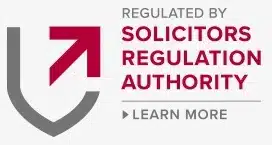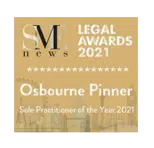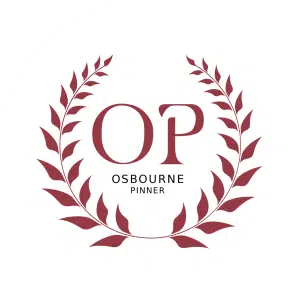Skilled Worker Sponsor Licence Solicitors: No Win, No Fee
Expert London UK solicitors, our lawyers make corporate immigration a breeze
- 1000+ successful sponsorship licence applications
- Full assistance with Certificate of Sponsorship & Skilled Worker Visa Applications
- Specialist in assisting successful Home Office compliance visits and auditing
- Fixed fee with instalment options
- Fast processing time
- 100% success rate
- “No Win, No Fee” Sponsorship Licence Application Services










We will always get the best possible result for our clients!
Our lawyers represent you with a proactive & forward-thinking mindset.
Apply Easily for Your Skilled Worker Sponsor Licence Visa with a Sponsor Licence Application
In January 2021, the UK introduced a comprehensive immigration point-based system, marking a pivotal shift in its approach to immigration post-Brexit. This new system evaluates candidates based on a structured set of criteria, ensuring that both EU and non-EU citizens are assessed equitably. The ‘new points-based UK Visa System’ meticulously evaluates an individual’s qualifications, skills and potential contribution to the UK workforce, offering a transparent pathway for those seeking a UK work visa.
The Skilled Worker visa route enables individuals to live and work in the UK for a job with an employer approved by the UK Home Office, serving as the successor to the former Tier 2 General work visa.
Additionally, for EU, EEA or Swiss citizens and their family members who were residing in the UK by December 31st 2020, the EU Settlement Scheme was available as an option to protect their residency rights post-Brexit. It’s important to note that the application deadline for the EU Settlement Scheme for most people was June 30th 2021.
If you want a UK Skilled Worker visa, you must have a sponsorship certificate from your employer providing all the information about the role you will be fulfilling. Your employer must have a skilled worker sponsor licence if they are bringing skilled workers from overseas. These sponsor licences fall under the category of Worker Licence and Temporary Licence.
Successful sponsorship licence applications allow firms to employ skilled candidates for long periods, who will commit to the job. With the complexities of skilled worker licences, candidates will seldom change jobs. It will be helpful for your business as it leads to better staff retention and also facilitates the individual’s career growth.
For a free confidential discussion about a UK sponsor licence application, contact our specialist immigration lawyers on [email protected] or 0203 983 5080. We offer a 30-minute free-of-charge initial consultation to learn more about the sponsor licence process and our 100% sponsorship licence application success rate.
No Win, No Fee
100% Success Rate
Free Initial Consultation
No Hidden Charges
The Dual Edge of Business Immigration: Opportunities and Complexities
In the global marketplace, business immigration stands as a cornerstone for growth, innovation and diversity. The strategic movement of talent across borders can significantly enhance a company’s competitive edge, bringing in fresh perspectives, specialised skills and new opportunities for expansion. However, navigating the intricate web of immigration laws and visa regulations presents its own set of challenges, underscoring the importance of expert UK visa guidance in leveraging the full benefits while mitigating potential risks.
What Is a Sponsor Licence?
A sponsorship licence is a certification granted by the UK Home Office to employers, allowing them to hire non-UK residents under the points-based immigration system. This system is designed to ensure that only skilled foreign workers who can contribute to the UK economy are permitted to enter and work in the country. To obtain a sponsorship licence, businesses must prove they are legitimate organisations operating lawfully within the UK, capable of fulfilling their sponsorship duties and a offering genuine vacancy that meets the skill and salary requirements.
The process involves a rigorous application where the employer must demonstrate their ability to comply with the sponsor management system (SMS) requirements. This includes record-keeping, monitoring employees’ immigration status and reporting certain activities to the Home Office. The application for a sponsor licence requires you to provide detailed information about the company, the types of workers it intends to sponsor and evidence of compliance with UK employment and immigration law.
Once granted, the sponsorship licence allows the employer to assign Certificates of Sponsorship (CoS) to prospective employees. These certificates are necessary for workers to apply for a visa under the Skilled Worker sponsor licence route or other overseas worker categories. The sponsorship licence is subject to a validity period, typically four years, after which it must be renewed. The Home Office may conduct compliance visits and audits to ensure ongoing adherence to the sponsorship obligations.
Holding a sponsorship licence comes with significant responsibilities. Employers must ensure that they only sponsor employees for roles that qualify under the points-based system, pay appropriate salaries and not displace suitable settled foreign workers. They must also track and report changes in sponsored employees’ circumstances and cooperate with the Home Office, including allowing compliance visits.
Failure to comply with these duties can result in the suspension or revocation of the sponsor licence, impacting the employer’s ability to sponsor current and future employees.
Therefore, it is crucial for businesses seeking to employ non-UK residents to understand the requirements and responsibilities associated with holding a sponsor licence and to maintain high standards of compliance.

What are the Different Types of Sponsor Licence?
UK businesses can apply for two main types of Sponsorship Licences, depending on the nature of the job offers and the employment they provide:
Skilled Worker Licence
Formerly known as the Tier 2 visa, this licence enables UK employers to sponsor skilled workers for long-term roles. The Skilled Worker Licence encompasses various visa categories, including:
- Skilled Worker Visa: For individuals offered a skilled job in the UK.
- Health and Care Worker Visa: Specifically for medical professionals coming to work in the NHS, social care sector or for NHS suppliers.
- Minister of Religion Visa (T2): For those coming to the UK for a religious role.
International Sportsperson Visa (T2): For elite sportspeople and coaches who will be based in the UK.
Student Sponsorship Licence
Previously known as the Tier 4 visa, the student sponsorship licence allows organisations to finance the full-time enrolment of foreign students at their preferred school. A Tier 4 sponsor is a college or university that provides full-time classes to students (including those from abroad) in the UK.
This licence enables educational institutes to issue Confirmation of Acceptance for Studies (CAS) to students. After this, only they can apply for the Tier 4 student visa, allowing them to pursue an education in the UK.
Temporary Worker Licence

Previously known as the Tier 5 visa, this licence allows for the sponsorship of individuals in temporary roles across various sectors. It is suitable for short-term employment, internships or voluntary work. The Temporary Worker Licence includes several categories, each tailored to specific employment types:
- Creative and Sporting Visa (T5): For artists, entertainers and sportspeople coming to the UK for up to 12 months.
- Charity Worker Visa (T5): For unpaid voluntary work for a charity.
- Religious Worker Visa (T5): For those coming to the UK for preaching, pastoral and non-pastoral work.
- Government Authorised Exchange Visa (T5): For individuals coming to the UK through approved schemes that aim to share knowledge, experience and best practice.
- International Agreement Visa (T5): For those coming to the UK under a contract covered by international law, including diplomatic households.
- Seasonal Worker Visa (T5): For seasonal foreign workers in the edible horticulture sector.
Entrepreneurs & Investors

Entrepreneurs and investors looking to start or invest in UK ventures will find our guidance invaluable in navigating the government’s requirements for business immigration. Our London immigration lawyers here to ensure your journey into the UK market is as seamless as possible.
Individuals & Families

Whether you’re a professional seeking UK employment or a family member of an existing worker, our London solicitors are equipped to navigate you through the myriad of visa options and requirements, including securing indefinite leave to remain.
How Do I Get a Sponsor Licence?
To obtain a sponsor licence, businesses must navigate a comprehensive application process that demonstrates their eligibility and readiness to uphold the responsibilities of sponsorship. The initial step involves ensuring the business is operating lawfully within the UK, with a genuine need to hire non-UK residents for specific roles that cannot be filled by the domestic workforce.
The skilled worker sponsor licence application process requires the submission of various documents to prove the legitimacy of the business, such as registration certificates, proof of business premises and financial statements. Additionally, the company must nominate individuals within the organisation to manage sponsor duties, including an Authorising Officer, a Key Contact and a Level 1 User. Each of these plays a crucial role in liaising with the Home Office and managing sponsored employees.
A critical aspect of the application is the demonstration of a robust HR and recruitment system that can meet the compliance requirements set by the Home Office. This includes the ability to:
- Track and monitor employees’ immigration status.
- Report significant changes in employment circumstances.
- Ensure that sponsored roles meet the skill and salary thresholds as defined by the points-based immigration system.
Upon submission of the skilled worker sponsor licence, the Home Office may conduct a compliance visit to assess the business’s readiness to take on sponsor licence duties. This visit aims to verify the information provided in the application and ensure the business has the necessary processes in place to comply with sponsorship obligations.
Successful skilled worker sponsor licence applicants will receive a sponsorship licence, allowing them to issue Certificates of Sponsorship to eligible employees. It’s important to note that obtaining a sponsor licence is just the beginning, as businesses must continually adhere to their sponsor duties to maintain their licence and avoid penalties.
How Long Will My Sponsor Licence Be Valid?
A sponsor licence is valid for four years from the date it is granted. During this period, the sponsoring organisation must adhere to the Home Office’s compliance requirements, including:
- Accurate record-keeping.
- Reporting significant changes.
- Ensuring that sponsored employees continue to meet the visa conditions under which they were hired.
Towards the end of the four-year period, sponsors wishing to continue employing non-UK residents must apply for sponsor licence renewal. The skilled worker sponsor licence renewal process involves a review of the sponsor’s compliance with the sponsor duties and responsibilities over the previous term. It’s crucial for sponsors to begin the sponsor licence renewal process well in advance of the licence expiry date to avoid any disruption in their ability to sponsor employees.
The Home Office may conduct a compliance visit as part of the renewal process to ensure that the sponsor has maintained the required standards of practice. Failure to renew the licence or comply with the sponsorship duties can lead to the revocation of the licence, affecting the sponsor’s current and future ability to hire non-UK residents.

What are the Eligibility Requirements for Tier 2 Sponsor Licence
Firms applying for a Tier 2 Sponsor Licence should complete the eligibility checklist first. The criteria that they need to fulfil are as follows:
Organisation's Base of Operation Should be in the UK
The organisation should be genuine and working, maintaining all the trading laws in the UK. People must be available in the UK office to deal with the Home Office. However, there are no regulations mentioning how old the company should be to be eligible for a licence.
Proof of Registration
You will be asked for documentation by the Home Office to prove your lawful workings in the state. It is crucial to get your company registered with an official body to eliminate any charges of unlawful activities. You must submit proof that the firm has local planning authority consent to operate a business at a trading address, along with supporting documentation to back up this claim.
Seamless Recruiting Systems
The firm needs to have an efficient HR and recruitment system to be able to fulfil the obligations and responsibilities of the sponsor and to provide proof of such fulfilment. The Home Office retains the power to inspect the site and look into sponsor compliance both before and after issuing the licence.
Proof of Genuine Job Opportunities
It is crucial to demonstrate that the business is advertising a position that fits the requirements for skilled workers. To confirm the precise nature of the position, roles and responsibilities, the Home Office may ask for more information.
Exaggerated job descriptions to match the required skill level will likely cause doubts that the position is not open.
Accepting All Duties
The Sponsorship Licence will have terms and conditions, requiring you to accept all duties that come with a sponsorship licence holder.
What are the Requirements for Skilled Worker Visas?
Skilled worker sponsor licence applicants are required to accrue a total of 70 points according to the new point-based UK visa system. Out of these 70 points, 50 points are for mandatory terms like the job offer, English speaking skills and required skill level. The remaining 20 points are tradeable requirements.
The sponsor should locate the appropriate SOC (Standard Occupation Classification) code for the role to assess whether the position qualifies for the Skilled Worker route. The ONS occupation coding tool is used to tabulate this data. The position being filled should be described in the list’s job description.
Jobs with skill levels below RQF3, equal to an A-level, will not be accepted via the skilled visa route.
The typical minimum income barrier for skilled overseas worker visas is £26,200 per year unless the “going rate” for the specific role is greater. However, the compensation level must be determined hourly rather than just annually.
What are Your Responsibilities as a Licence Sponsor?
As a licence sponsor, your responsibilities are critical to maintaining the integrity of the UK’s immigration system and ensuring that you comply with the Home Office’s requirements. These responsibilities include:
Compliance with the Law
Ensure that your organisation complies with all UK immigration laws and regulations.
This includes only employing individuals who have the right to work in the UK and adhering to the conditions of your sponsor licence.
Record Keeping
Maintain accurate records for each foreign worker you sponsor, including their contact details, a copy of their visa and their right to work documentation. These records must be readily available for inspection by the Home Office.
Reporting Duties
Report specific events to the Home Office within the stipulated time frames. This includes reporting if:
- A sponsored employee does not show up for their first day of work.
- They are absent without permission for more than 10 days.
- Their contract is terminated earlier than expected.
- There are significant changes to their employment circumstances (e.g., change in job title or salary, change of location).
Genuine Employment
Ensure that the job you are sponsoring the individual for is genuine and meets the skill level and salary requirements as outlined by the Home Office. The role should not be created solely to facilitate the entry of a foreign worker into the UK.
Cooperation with the Home Office
Allow the Home Office to conduct compliance visits, both announced and unannounced, and provide any requested information in a timely manner. This includes demonstrating your organisation’s ability to meet sponsor duties.
Preventing Illegal Employment
Take steps to prevent illegal employment practices within your organisation. This includes conducting right to work checks and ensuring that your sponsored employees do not undertake any work that is not permitted under their visa conditions.
Informing Sponsored Employees
Inform your sponsored employees about the conditions of their stay in the UK, including their rights, their duties and any restrictions on their employment.
Fulfilling these responsibilities is essential for maintaining your sponsor licence and your ability to employ non-UK residents. Failure to comply with these duties can result in penalties, including the suspension or revocation of your sponsorship licence.
How Much Does a Sponsor Licence Application Cost?
Applying for a sponsor licence is a crucial step for UK companies looking to hire non-UK residents. The cost of the application varies depending on the size and type of your organisation. It’s important to understand these costs upfront to budget accordingly for the application process. Below is a breakdown of the application fees as per the official UK government website:
Type of Organisation
- Small or Charitable Organisations – £536
- Medium or Large Organisations – £1,476
Small or Charitable Organisations are defined as those having an annual turnover of £10.2 million or less, with 50 employees or fewer, or holding charitable status. Medium or Large Organisations are those that do not meet the criteria for small or charitable organisations.
In addition to the skilled worker sponsor licence application fee, there may be other costs involved in the process, including fees for legal advice or assistance and costs related to compliance with sponsor licence duties, such as HR system upgrades or training. It’s also important to budget for the Immigration Skills Charge, which applies when you assign a Certificate of Sponsorship to a worker and varies depending on the size of your organisation and the length of employment.
Remember, these skilled worker sponsor licence fees are non-refundable, even if your application is refused or withdrawn. Therefore, it’s crucial to ensure that your skilled worker sponsor licence application is complete and accurate before submission.
Additionally, staying compliant with your sponsorship duties can help avoid future costs associated with non-compliance, such as fines or the cost of reapplying for a licence if it is revoked.
Understanding and planning for these skilled worker sponsor licence costs will help ensure a smooth skilled worker sponsor licence application process and the successful acquisition of a sponsor licence, allowing you to hire the talent your business needs.

How to Apply for a Sponsor Licence in the UK
The Home Office outlines five steps for the sponsorship licence application process.
1. Business Eligibility
Our specialist immigration solicitors in London, UK will compile a detailed list customised to your unique situation, to help ensure your skilled worker sponsor licence application’s success. Inaccurate or missing documentation can cause application delays or denials, highlighting the importance of professional legal advice. Osbourne Pinner Solicitors in London, UK is dedicated to simplifying the business immigration process, offering comprehensive support every step of the way.
2. Job Eligibility
Next, there’s the job you’re using for the sponsorship licence application. Based on the two types of sponsor licence, this can be either a skilled worker or temporary sponsored worker. Skilled workers are typically defined as people with a variety of duties, which may be complex. On the other hand, temporary workers can be anything from charity workers and religious workers to secondment workers and seasonal workers.
3. Choosing Your UK Sponsor Licence
Next is choosing the type of sponsor licence application. As above, this is simply down to which kind of foreign worker you’re hiring – skilled or temporary. Be sure to check the government’s sponsor licence guidance for more information on each visa category.
4. Organising Management
Before you apply for a sponsorship licence, you need to have people and processes in place to manage sponsor licence holders. This is one of your main sponsor duties, so it’s important to have an authorising officer in place.
5. Applying Online
Once you’ve met your sponsorship duties to employ skilled workers or temporary positions, you can apply for a sponsor licence using the online skilled worker sponsor licence application form. This is when you’ll pay the sponsor licence application fee. The sponsor licence application fee can vary, but it is one of the final parts of the sponsor licence application process.
What Documents will my Company Need to Apply for a Sponsor Licence?
When applying for a sponsor licence, your company must provide various supporting documents to prove its eligibility and compliance with the Home Office requirements. These documents are crucial for demonstrating your business’s legitimacy, operational presence in the UK and readiness to fulfill sponsor duties. Below is a list of commonly required supporting documents, although specific requirements may vary depending on your business type and the nature of the sponsorship:
Proof of Business Operation
Documents showing your business is active and operating in the UK, such as bank statements, utility bills or lease agreements for your business premises.
Company Registration Documents
For limited companies or partnerships, include your registration documents with Companies House, such as a certificate of incorporation or a partnership agreement.
Financial Statements
Recent financial statements to demonstrate your business’s financial health and stability.
Employer’s Liability Insurance
A certificate of employer’s liability insurance with a minimum coverage of £5 million from an authorised insurer.
HR and Recruitment Practices
Evidence of robust HR and recruitment practices, including a sample of contracts of employment, an organisational chart and job descriptions for roles you intend to fill with sponsored employees.

Licence Authorising Officer
Identification and contact details for the individuals you’ve nominated as your Authorising Officer, Key Contact and Level 1 User, including their right to work in the UK.
Sponsor Management Roles
Documentation detailing the roles and responsibilities of the Authorising Officer, Key Contact and Level 1 User within your organisation.
It’s important to check the latest guidance from the UK Home Office as the required documents list can change. Ensure all supporting documents are current, accurate and fully completed to avoid delays or rejection of your sponsor licence application.
What Can I Do if My Application for a Sponsor Licence Is Refused?
Depending on the seriousness of the Home Office’s concerns, you may have a sponsor licence application refused or rejected. For instance, if a sponsor licence application is incomplete or contains errors, the application will be invalid and, as a result, will be rejected. There are many reasons why it could lead to the refusal or rejection of the sponsorship renewal, including:
- Level 1 user listed in the application is not an employee, partner or director of the company.
- When an original document has been certified but the Home Office cannot verify the details of the certifier.
- When a renewal application is made, the small licence fee is paid instead of the full payment.
- If false documents have been submitted, you could see your sponsor licence application refused.
- The previously approved licence has been revoked by the Home Office.
- The applicant failed to send the documents asked by the Home Office for further assessment.
Actions You Can Take if Your Sponsor Licence Application Is Refused
If your application for a sponsor licence is refused, you have several steps you can take:
Understand the Reasons for Refusal
Carefully review the refusal letter from the Home Office to understand why your application did not have a successful outcome. Common reasons include incomplete sponsor licence applications, failure to meet eligibility criteria, or insufficient evidence of compliance with sponsor licence duties.
Address the Issues
Work on rectifying the issues highlighted in the refusal. This may involve improving your HR systems, ensuring your business meets all the eligibility requirements, or gathering additional documentation to support your application.

Reapply After the Cooling-Off Period
If your application is refused, a ‘cooling-off’ period may apply, during which you cannot reapply for a sponsor licence. Use this time (typically six months) to address the reasons for refusal thoroughly.
Seek Legal Advice
Consider consulting with business immigration solicitors or legal experts specialising in UK immigration and sponsorship licences. They can provide tailored advice, help you understand the refusal reasons, and guide you on the best course of action for a successful reapplication.
Error Correction Request
If you believe there has been an administrative error in the refusal decision, you can submit an error correction request to the Home Office. This must be done within 14 days of receiving the refusal notice.
Judicial Review
As a last resort, if you believe the refusal was unlawful, unreasonable, or procedurally improper, you may consider challenging the decision through a judicial review.
This is a complex legal process and should be pursued with the advice and representation of a qualified legal professional.
It’s important to approach the situation methodically, addressing any deficiencies and ensuring full compliance with the Home Office’s requirements before reapplying or taking further action.
Compliance Visits by the Home Office
When firms apply for a Skilled Worker Licence, the Home Office investigates the application for the organisation’s capability to become compliant. In several cases, the Home Office might decide on physical checks of the office. These checks may or may not be announced by them beforehand.
The reason for these compliance visits is to check if the organisation is handling its HR and recruitment systems efficiently. They also ensure their systems can handle foreign nationals and manage migrations while fulfilling their legal obligations. If an organisation did not face any inspection beforehand, they would during a renewal.
Home Office representatives have the right to ask to see people, HR systems and documentation during the inspection. They can also speak with your sponsored employees to cross-reference data on their CoS, such as information on pay, working hours, locations and responsibilities. The licence application may be rejected if Home Office officials find any compliance issues or violations during the inspection.
What is the sponsor licence number & how do I get the sponsor licence number?
A sponsor licence number is a unique identifier assigned to UK businesses and organisations that have been granted permission to employ non-UK resident workers. This number is essential for administering the sponsorship process, including issuing Certificates of Sponsorship (CoS) to prospective employees. It serves as a reference in all communications with the Home Office regarding your sponsor duties and is a testament to your organisation’s eligibility to sponsor migrant workers.
What is a sponsor licence rating?
A sponsor licence rating reflects the compliance level of a UK employer with the Home Office’s requirements for sponsoring migrant workers. There are two ratings: A and B.
An ‘A-rating’ is given to new sponsors or those fully compliant with their sponsor duties, allowing them to sponsor migrant workers without restrictions.
A ‘B-rating’ may be assigned if the Home Office finds that a sponsor is not fully compliant but can make improvements. B-rated sponsors may face restrictions and must follow an action plan to upgrade to an A-rating.
What are certificates of sponsorship?
Certificates of Sponsorship (CoS) are electronic records, each with a unique reference number, that must be assigned to each migrant worker you wish to sponsor. A CoS confirms that the job offer is genuine and meets the salary and skill requirements of the visa route. It contains information about the job, the worker and the sponsorship. There are two types:
Undefined CoS are for workers who already work in UK and are planning to switch to the skilled worker category.
Defined CoS are for overseas skilled worker visa applicants.
What is the ‘cooling off’ period following an application refusal?

The ‘cooling off’ period is a mandatory waiting time imposed by the Home Office after a sponsor licence application is refused. During this time, typically six months, the business cannot reapply for a sponsor licence. The cooling off period is intended to give businesses time to address the reasons for refusal and ensure compliance with the Home Office’s requirements before submitting a new application. It’s crucial to understand and rectify the issues that led to the refusal to avoid future rejections.
What is the processing time for a sponsor licence application?
The processing time for a sponsor licence application can vary, but typically, the Home Office aims to process applications within 8 to 12 weeks from the date of submission. Factors such as the completeness of your application, the need for additional information or the volume of applications being processed can affect the timeline. Businesses can opt for a priority service at an additional cost, which promises a faster decision within 10 working days, subject to availability and meeting specific criteria.
Can I employ migrant workers without a sponsorship licence?
No, UK employers cannot legally employ non-UK resident workers without obtaining a Sponsor Licence from the Home Office. The licence is a prerequisite for sponsoring employees under the points-based immigration system, ensuring that migrant workers have the necessary approval to work in the UK. Employing migrant workers without a licence could lead to legal penalties, including fines and restrictions on future sponsorship capabilities.
Meet our immigration lawyers team

Richard Young
SENIOR LITIGATION SOLICITOR

Yee Han
IMMIGRATION ASSOCIATE

Santhosh Kumar
SENIOR SOLICITOR

SAMINA AKUJI
IMMIGRATION SOLICITOR
No Win, No Fee
100% Success Rate
Free Initial Consultation
No Hidden Charges
Why Choose Osbourne Pinner Solicitors?
Expert Legal Guidance
Navigating the complexities of applying for and maintaining a Sponsor Licence is crucial for businesses aiming to recruit international talent. At Osbourne Pinner Solicitors, we specialise in offering comprehensive legal guidance to effectively manage the intricacies associated with the Sponsorship Licence process. From guiding you through the initial application process to advising on compliance with ongoing Home Office regulations, our team delivers the expertise and strategic counsel necessary for successful sponsor licence management.
Tailored Legal Strategies
Effective management of your Sponsor Licence is essential for its smooth operation. Our sponsorship licence solicitors are adept at crafting customised legal strategies to address the specific needs of your business, ensuring you are well-prepared to meet all related requirements. With detailed analyses of potential legal challenges and proactive advice on minimising risks, we assist you in maintaining operational stability while adhering to Home Office guidelines.
Assistance with Complex Legal Issues
The legal landscape surrounding Sponsor Licences can be daunting, requiring thorough planning and a deep understanding of immigration law. As professional immigration lawyers, Osbourne Pinner Solicitors stands ready to support your business, offering expert legal advice on all matters related to your Sponsor Licence. We simplify the legal complexities of sponsor licence management for you, from estimating legal fees to strategising on handling potential audits and compliance verifications.
Transparent and Predictable Legal Fees
We value transparency and predictability in our legal fee structure. Osbourne Pinner Solicitors is proud of our clear, fixed-fee approach to managing the costs associated with your Sponsor Licence, offering you certainty and clarity in your financial planning. This policy ensures you are fully informed of your financial commitments from the start, with no hidden surprises.
Specialised Legal Expertise
Managing the legal aspects of a Sponsor Licence demands specialised expertise. Our team of dedicated sponsorship licence lawyers possesses extensive experience in the legalities of Sponsorship Licence application and management, ensuring your business navigates these challenges efficiently and effectively. We are committed to securing the best possible outcomes for your business and your international workforce.
Dedication to Responsive Legal Advice
The uncertainty surrounding Sponsor Licence legal requirements can be a source of stress for any business. Our dedication to providing quick and responsive legal advice underscores our commitment to alleviating these concerns, ensuring you receive timely and precise guidance on all your queries. Our aim is to offer you legal peace of mind, supporting your business with proactive and attentive service.
Transparent and Clear Advice
Speedy Processing
Free Initial Consultation
No Hidden Fees
Book Your 30-Minute Free Initial Consultation
Based in London, Osbourne Pinner Solicitors offer a 30-minute free-of-charge initial consultation which can take place in our offices or through a video conference. If you would like us to book you in for this free consultation for a sponsorship licence application, give us a call on 0203 983 5080 or fill the online enquiry form.or Licence Services
- 1000+ successful sponsor licence applications
- Full assistance with Certificate of Sponsorship & Skilled Worker Visa
- Specialist in assisting successful Home Office compliance visits and auditing
- Fixed fee with instalment options
- Fast processing time
- 100% success rate
- “No Win, No Fee” Sponsor Licence Services
BOOK A FREE CONSULTATION
We do not offer Legal Aid.
Sponsor Licence FAQs
Often, a Sponsor Licence can be the difference between progressing your career and life or being stuck. That’s why many people choose to seek legal help. As expert sponsorship licence lawyers, we can guide you, assist you in preparing documents and represent you or your organisation throughout the application process. This may be especially important if there are specific, tricky circumstances that you are trying to overcome.
Small businesses and charities are supposed to pay a sponsor licence fee of £536, but all other organisations have to pay £1,476. Along with the sponsorship charges, you will also have to pay the Immigration Skills fee of £1,000 per year for each sponsored worker. Lastly, there is a sponsor licence application cost of £199 for each certificate of sponsorship (CoS).
To switch to a Tier 2 sponsorship, the firm has to apply to the Home Office, giving proof that they are eligible for a Tier 2 sponsorship and pay the required fee.
A valid sponsor licence lasts for a period of four years. At the end of this period, it will expire unless sponsored workers and their licenced sponsor take the necessary steps to renew the sponsorship licence.
During the sponsor licence application process and the duration of the visa, the key contact is a sponsor licence holder’s main point of contact with the Home Office. This is typically an authorising officer within a company – a senior and competent person, responsible for managing the sponsor licence scheme within your business.
A sponsor licence is required from the Home Office when employing someone from outside the UK. This includes citizens from the EU as well as EEA countries like Norway, Iceland and Liechtenstein, plus EFTA members, Switzerland. The first step for these citizens is applying for a sponsor licence. Certain exemptions to the sponsorship licence are:
- Anyone with indefinite leave to remain
- Irish citizens
- People with pre-settled or settled status through the EU Settlement Scheme
A sponsor management system, often abbreviated to SMS, is a piece of software that automates the sponsorship process. It gives organisations a simple, streamlined way to quickly and efficiently track and manage sponsorship licence applications.
The main ‘worker’ licence categories under the UK’s points-based immigration system include the Skilled Worker route, which allows UK employers to sponsor individuals for jobs that meet specific skill and salary levels. Other sponsor licence categories include:
- The Health and Care Worker visa.
- The Intra-Company Transfer route for multinational companies.
- The Minister of Religion or Sportsperson visas .
Each category has its own requirements and conditions for sponsorship.

















